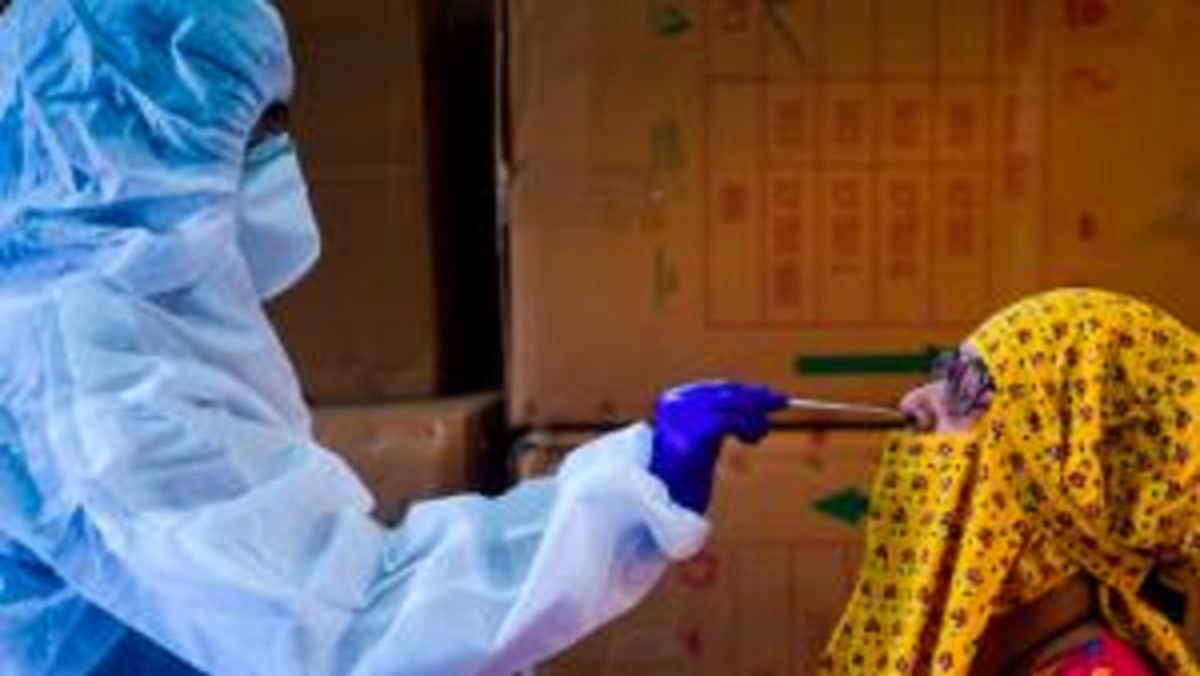More than 60 million people in India may have caught Covid-19, survey finds
More than 63 million people in India may have contracted Covid-19, health authorities said on Tuesday -- about 10 times higher than the official reported figures.
A national survey of more than 29,000 people across 700 villages and wards found that about one in 15 people above the age of 10 had antibodies against the coronavirus, according to the Indian Council of Medical Research. The survey was conducted from mid-August to mid-September.
Antibody tests, also known as serology tests, check for proteins called antibodies in the immune system, which indicate if someone has been exposed to the virus.
Of the country's 1.3 billion citizens, more than 966 million are aged 10 or above, according to the government's most recent census in 2011. If one in 15 people of this group have been infected with Covid-19, that's a total of 63.78 million people.
As of Wednesday, India has reported more than 6.1 million cases and 96,000 deaths, according to data compiled by Johns Hopkins University.
The survey suggests that for every one infection officially reported, there are actually 26 to 32 people infected who slip through the cracks, said Dr. Balram Bhargava, director of the medical council, at a news conference on Tuesday.
This falls in line with what many experts have warned for months -- that India's coronavirus crisis may be much more dire than official figures suggest.
There are numerous reasons for this: People simply aren't getting tested enough. There are sometimes errors in reporting and registering cases. Changing government strategies can muddle the numbers and paint a misleading picture of the situation.
The government began rolling back restrictions in May after a months-long lockdown, with ministers turning their attention to reopening the economy and public services. But experts, including Bhargava, warn that it's too soon to relax.
"Since a large proportion of the population is still susceptible, prevention fatigue has to be avoided," Bhargava said, adding that the risk of infection was highest in urban slums where millions live in crowded conditions, often with limited sanitation or running water.
Slum residents had a seroprevalence -- meaning they carried antibodies -- of 15.6%, almost double the 8.2% detected in residents of non-slum urban areas. The figure drops in rural areas to 4.4%, according to the survey.
The survey shows how important it is for the Indian public to continue taking coronavirus precautions like social distancing and personal hygiene, said Bhargava on Tuesday -- especially during Diwali, the festival of lights. The festival, which this year falls on November 14, is one of India's biggest annual holidays.
"In light of the upcoming festivities, in light of the winter season and mass gathering, containment strategies must be implemented by the states and the use of masks cannot be underlined more than after this seroprevalence survey," he warned. "That is very, very essential."
The numbers don't show the full picture
Experts have long suspected that the number of cases in India may be vastly underreported.
Ramanan Laxminarayan, a senior research scholar at Princeton University, predicted that the country may be undercounting infections by a factor of 50 to 100 -- meaning the "true" number could be upwards of 100 million.
One simple reason behind the discrepancy is insufficent testing. India has stepped up its testing, almost doubling the amount of tests conducted during the month of August -- but it still lags far behind other major countries.
Only about 82 of every 100,000 people in India are being tested per day, according to Johns Hopkins University -- compared to about 284 in the US and 329 in the United Kingdom.
"All the other countries test two times, three times, 10 times what India is testing," community medicine specialist Dr. Hemant Shewade told CNN earlier this month.
Meanwhile, India's mortality rate of 1.6% looks much lower than other countries -- compared to 2.9% in the US, 9.5% in the UK, and 11.5% in Italy, according to Johns Hopkins University. But coronavirus deaths, too, are likely being undercounted.
Even when India isn't facing a pandemic, its underfunded public health infrastructure means that only 86% of deaths nationwide are even registered in government systems. And only 22% of all registered deaths get an official cause of death, certified by a doctor, Shewade said.
And even if a coronavirus patient tested positive before dying, they might not be counted as a Covid-19 death if they had other preexisting conditions, such as diabetes or cancer, which could be recorded as the cause of death instead, he added.
Some world leaders have pointed out the flaws in case reporting; US President Donald Trump brought up the topic during the presidential debate against Democratic nominee Joe Biden on Tuesday night.
"When you talk about numbers, you don't know how many people died in China, you don't know how many people died in Russia, you don't know how many people died in India," he said. "They don't exactly give you a straight count, just so you understand."
News Courtesy: www.newaged.net











